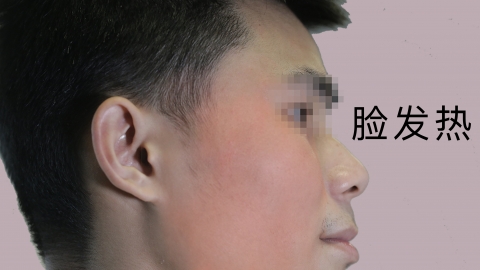What is the scientific basis for prohibiting drinking water in cases of heatstroke?
Under normal circumstances, the scientific basis for prohibiting drinking water in cases of heat stroke generally includes the risks of inducing vomiting and aspiration, increasing cardiac load, causing electrolyte disturbances, affecting heat dissipation efficiency, and potentially leading to water intoxication. If any abnormalities occur, prompt medical attention is recommended. Detailed explanations are as follows:

1. Prone to induce vomiting and aspiration: Patients with heat stroke often experience impaired consciousness and weakened or absent swallowing reflexes. Drinking water at this stage may stimulate the gastrointestinal tract and cause vomiting, with the vomitus possibly entering the trachea, leading to airway obstruction and endangering life. This is a key reason for prohibiting drinking water.
2. Increase cardiac load: Heat stroke places the body in a state of heat stress, with already compromised cardiac function. Consuming large amounts of water rapidly increases blood volume, further burdening the heart and potentially triggering heart failure. Therefore, blind water intake must be avoided.
3. Lead to electrolyte disturbances: Patients with heat stroke lose significant amounts of electrolytes such as sodium and chloride through heavy perspiration. If only pure water is consumed, it dilutes the remaining electrolytes in the body, disrupting osmotic pressure balance and potentially causing muscle spasms and arrhythmias. This is why large volumes of plain water should not be consumed.
4. Impair heat dissipation efficiency: Excessive water intake directs blood flow toward the gastrointestinal tract for digestion and absorption, reducing skin circulation and impairing the skin's ability to dissipate heat, which hampers body temperature reduction and delays recovery. Thus, water intake should be restricted.
5. Potentially cause water intoxication: Heat stroke may impair kidney function, reducing the body's ability to excrete water. Excessive water intake can lead to fluid retention, causing dilutional hyponatremia (water intoxication), which may result in severe complications such as cerebral edema. Therefore, excessive water consumption must be avoided.
When dealing with a patient suffering from heat stroke, the principle of strictly prohibiting blind water intake should be followed. Initial cooling measures should be taken immediately, followed by prompt transportation to a medical facility. Qualified professionals should assess the condition and safely replenish fluids and electrolytes via intravenous infusion. Never attempt to give water orally, to avoid dangerous complications.




